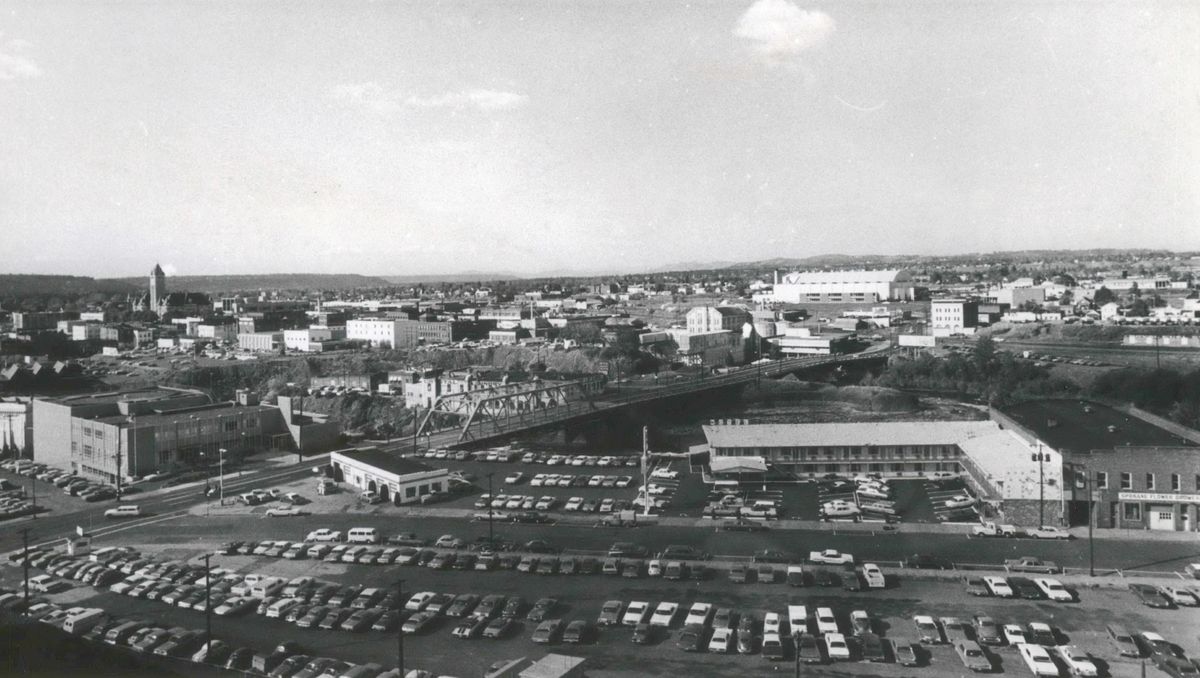Then and Now: Havermale Island

Havermale Island, in the middle of the Spokane River, makes up much of the area of today’s Riverfront Park. For early settlers, it was an important site and refuge.
Rev. Samuel Havermale was a Methodist preacher and businessman. He was born in Maryland in 1824 and married Elizabeth Goldthrop in 1849. After many years in Ohio and Illinois, the couple accepted a transfer to Walla Walla, in the Washington Territory.
Havermale rode through the tiny settlement of Spokan Falls in May 1875. He fell in love with the landscape and moved his family here, one of the first five white families in Spokane. He filed a homestead claim on 120 acres that included the islands in the middle of the Spokane River, where he intended to live.
Since the U.S. Army had defeated several hundred Indians at Four Lakes, near Cheney, in 1858, and then slaughtered the horses of local tribes, the settlers were mostly left alone. But in the spring of 1877, there was a rumor that the Nez Perce Tribe was preparing for battle.
So the Spokane areas settlers fell back to Havermale’s island, where a single wooden bridge was the only access.
No direct attack ever came.
After the scare faded, Havermale built Spokane’s first Methodist church in 1879 and preached there for a couple of years, then left the pulpit and built a successful flour mill. Havermale was on the first city council in 1881.
Havermale sold land to the Great Northern railroad, which opened the Great Northern Depot there in 1902. Other land became warehouses, factories and garages from the time of the first railroad tracks until all was removed for Expo ’74.
Havermale died in 1904.
But even before the world’s fair transformation, rail use was declining and industry was moving away from downtown Spokane.
A new Travelodge was built in 1959. In 1964, a new YMCA facility opened nearby.
The motel was torn down to clear the space for the U.S. Pavilion at Expo ’74. The YMCA was torn down in 2011.